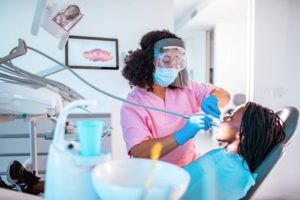
What is a dental practitioner? The local dentist W1 is a medical service provider who will endeavour to meet your medical needs.
Why do they exist?
As long as there have been people from the earliest days of human history, there has been the need for intervention when tooth decay occurs along with dental abscesses. When the health of teeth goes wrong the discomfort associated with this can seem disproportionate
How do they work?
In the UK, there is a mix of tightly regulated medical services with sub-contracted NHS patients. Depending on if you qualify, there are many procedures and even the standard check-up which can be partially paid for via the NHS, therefore not at the point of use. For non-NHS procedures, a price is agreed on with the surgery with payment expected after work is performed. Many surgeries offer payment plans, to allow these costs to be spread over a more reasonable time period.
What do you mean regulated?
The right to practise dentistry in the UK is protected; to practise dentistry, you need to have completed approved training and be registered with the GDC the General Dental Council. This means you can go to the GDC website and look up the staff at your local surgery, to check their qualifications.
The General Dental Council provides a means of settling disputes on dental care and must investigate complaints against dental practitioners and can revoke licences in the event of malpractice.
What do I have to do to see a dental professional?

You should register with a local dentist in Harley Street when you move into this area. Depending on the nature of your condition and the availability of the clinic in question, you should aim to book a check-up within the following few weeks.
It may be possible to make an emergency appointment; the clinic will keep records of their patients, which will include all past works and notes made by the practitioner.
These are used to guide future treatment and record work completed.
In the event of an emergency, if you’re not registered with a dental clinic, there are dental departments in your nearby hospital that can see you after regular triaging via A&E.
What kinds of things can dentists do?
The work of a dental practitioner is multi-disciplined. The connecting factor is oral health and minor-oral surgery. The historic name of a dentist was ‘an operator of the teeth’.
A normal treatment pathway starts with an assessment to determine if any (or which) treatment options are required. This might occur after you attend with unpleasant symptoms or during routine 6 monthly check-ups.
Then the dental team has to present options to the patient in a clear and unbiased manner, allowing the patient to direct their care. Depending on which treatment options are agreed upon, they may be performed right there and then, like a scale and polish or fillings. Alternatively, there may be a need to book in for future treatment as in the case of a root canal, where a course of antibiotics will have to be taken before any dental work can be started.
Either way, your local dental staff are willing to help, and if you haven’t already done so, don’t forget to register.







